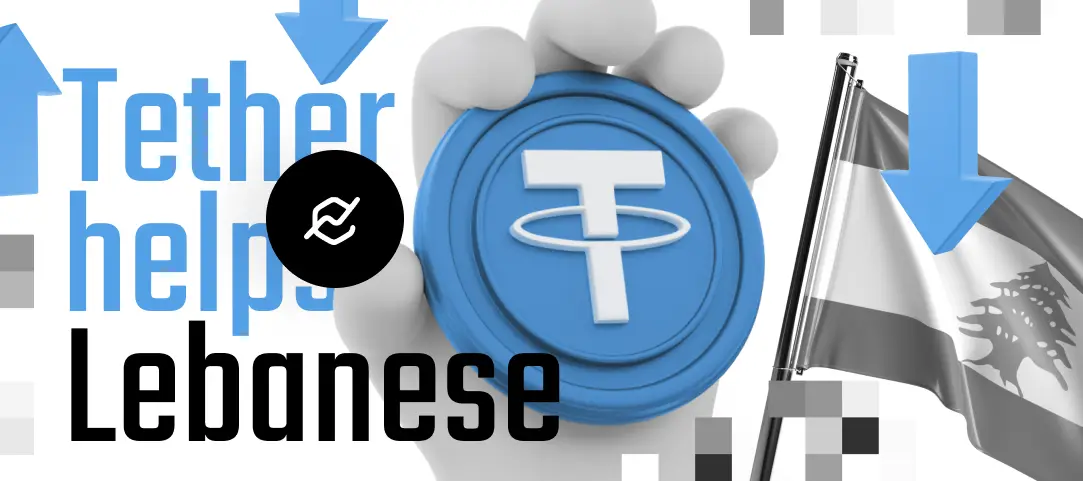
According to the World Bank, Lebanon is currently under an extreme economic crisis, one of the largest since 1850 worldwide. The United Nations stated that about 78% of the Lebanese population is below the poverty line. After the October 17 Revolution the pandemic followed, banks first shut down, then reopened again, offering much lower exchange rates for U.S. dollars than in the open market, as reported by CBCN. Just so you understand, the local currency, which for 25 years was pegged at 1,500 Lebanese pounds to the U.S. dollar, is now about 40,000 pounds to the U.S. dollar.
To cope with the crisis, citizens have turned to decentralized tools, using Bitcoin and Tether in their daily lives. We covered a piece by Arthur Hayes on this matter last week. The use of Tether is especially widespread because of Bitcoin’s volatile nature, and you can pay for purchases, groceries, in cafes. As for crypto exchanges, Lebanese are typically using peer-to-peer tether-US dollar exchanges via Telegram. To learn more about the exchanges, read How to Trade Cryptocurrency: Investing in Cryptocurrency for Beginners.
Interestingly enough, the use of crypto as payment is prohibited under law, but citizens are still paying one another in crypto and promoting their services on social media such as Instagram. As locals are commenting on the matter, they’re saying the government has bigger problems than chasing the locals for using crypto.
Another thing is also a benefit in these circumstances – Lebanon’s low price of electricity. In order to get more profit, some people have started mining businesses. Abu Daher told CBCN that it had been 26 months since his team first set up shop, and “business is thriving”. He says he made a $20,000 profit this September — half of it from mining, half from selling machines and trading in crypto.
As reported by Chainanalysis, Lebanon recorded a significant spike of 147% in the total volume of cryptocurrency transactions it handles in the region, ranking second after Turkey in North Africa and the Middle East.

 2 years ago
163
2 years ago
163














 English (US) ·
English (US) ·